UX Writing
User-Centered Copy
Research-backed copywriting that speaks to Sean's Legacy mentors in their own words.
Challenge
The Sean's Legacy Mentorship platform needs to attract mentors in order to offer a successful product.
Solution
Offer language mentors already align with in order to personalize their experience and increase sign-ups.
Outcome
Copy that resonates with mentors and eases concerns, except one word that 3 out of 6 mentors found confusing...
My Role
Content Designer on a team of 3
Speaking to mentors in their own words
In collaboration with the research team, I compiled a list of themes and words from their findings:
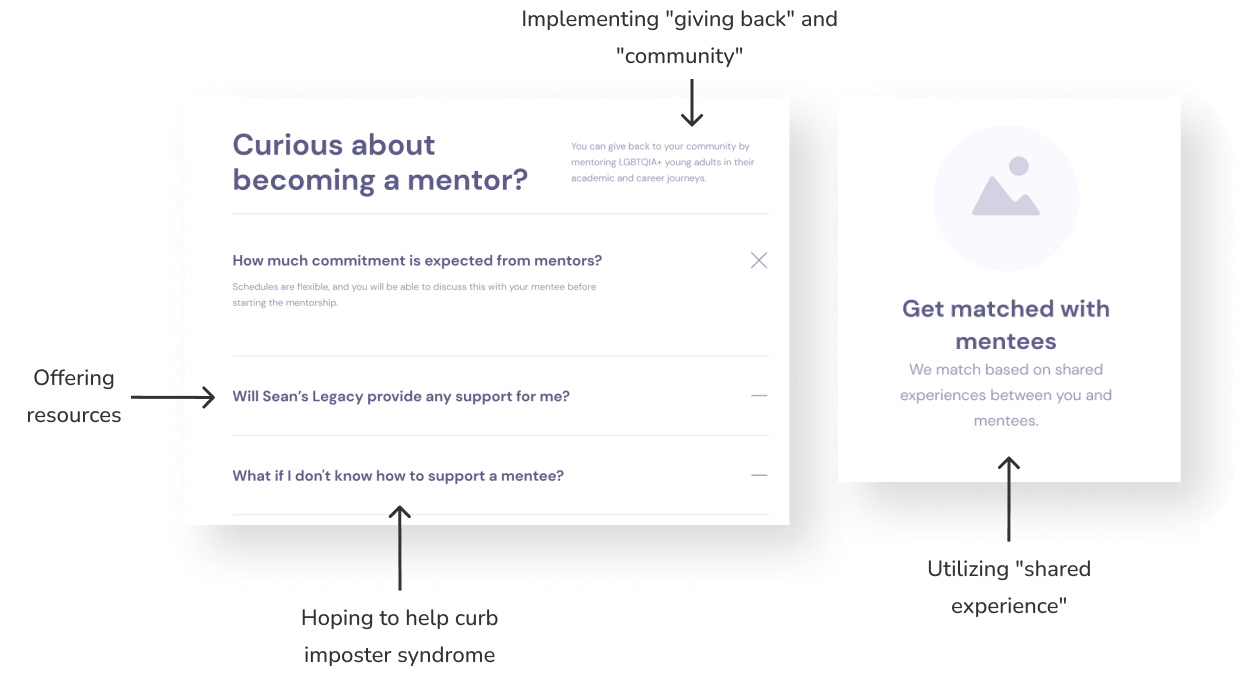
Reworking content hierarchy and addressing mentor concerns
The list helped reimagine the landing page hierarchy, where an initial FAQ section was iterated upon. Giving back and community were utilized in the copy to speak to mentors directly and questions were crafted based on themes from user interviews.
Before
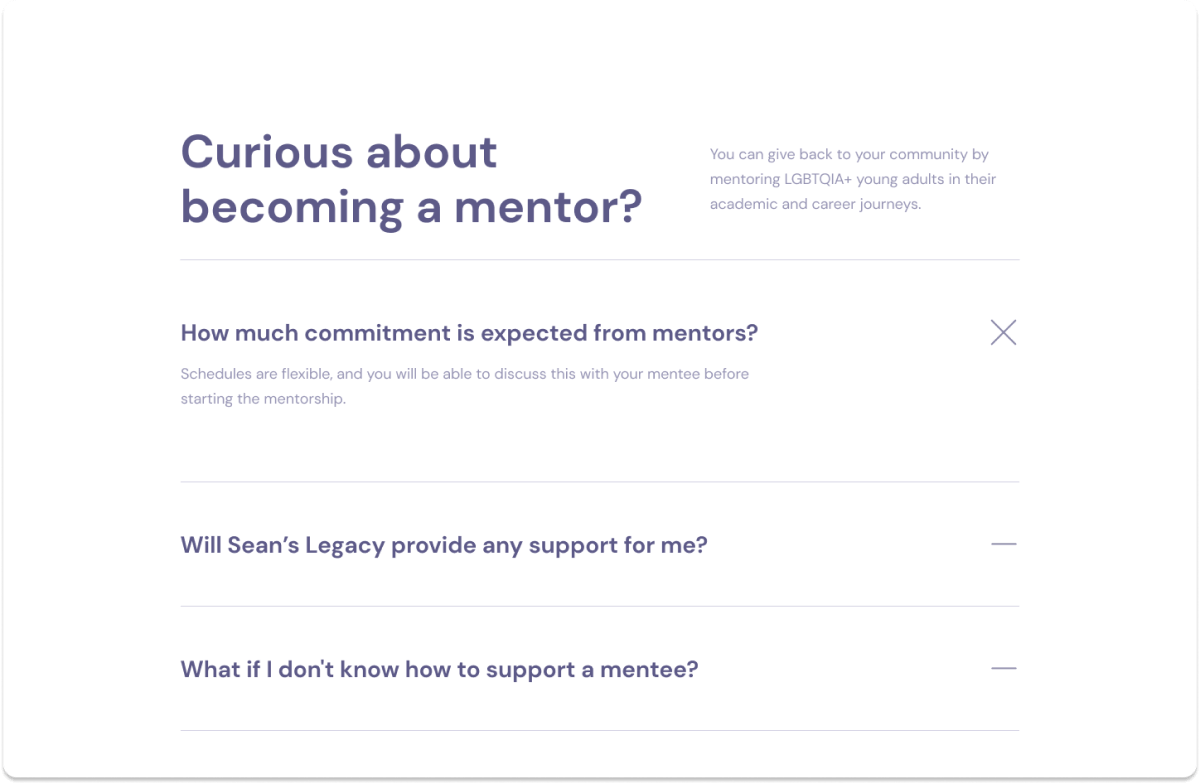
After
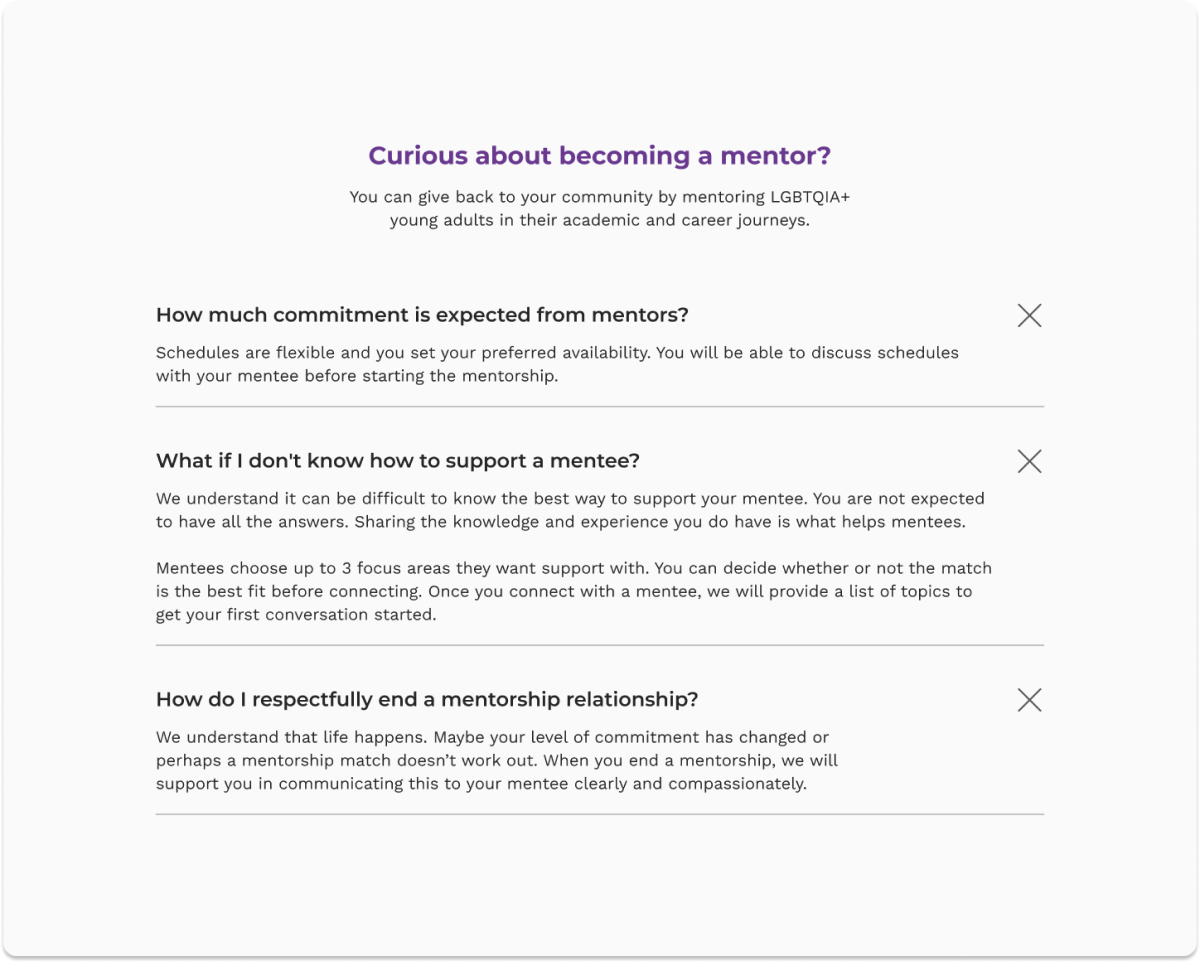
With cross-team input, we removed questions on how mentors are supported and an entire section was dedicated to the topic of support. The original question was changed to address themes of imposter syndrome.
I was responsible for writing body copy around supporting mentees, and I followed our established voice guidelines, using an empathetic tone.
The Research team suggested a question on ending mentorship. While our team supported this, we discussed if it might be better placed within the platform's internal resource section, not on the landing page. However, research indicated mentors named this an area of high concern and therefore we chose to move forward with including it here.
Addressing mentor desires for community, resources, and privacy
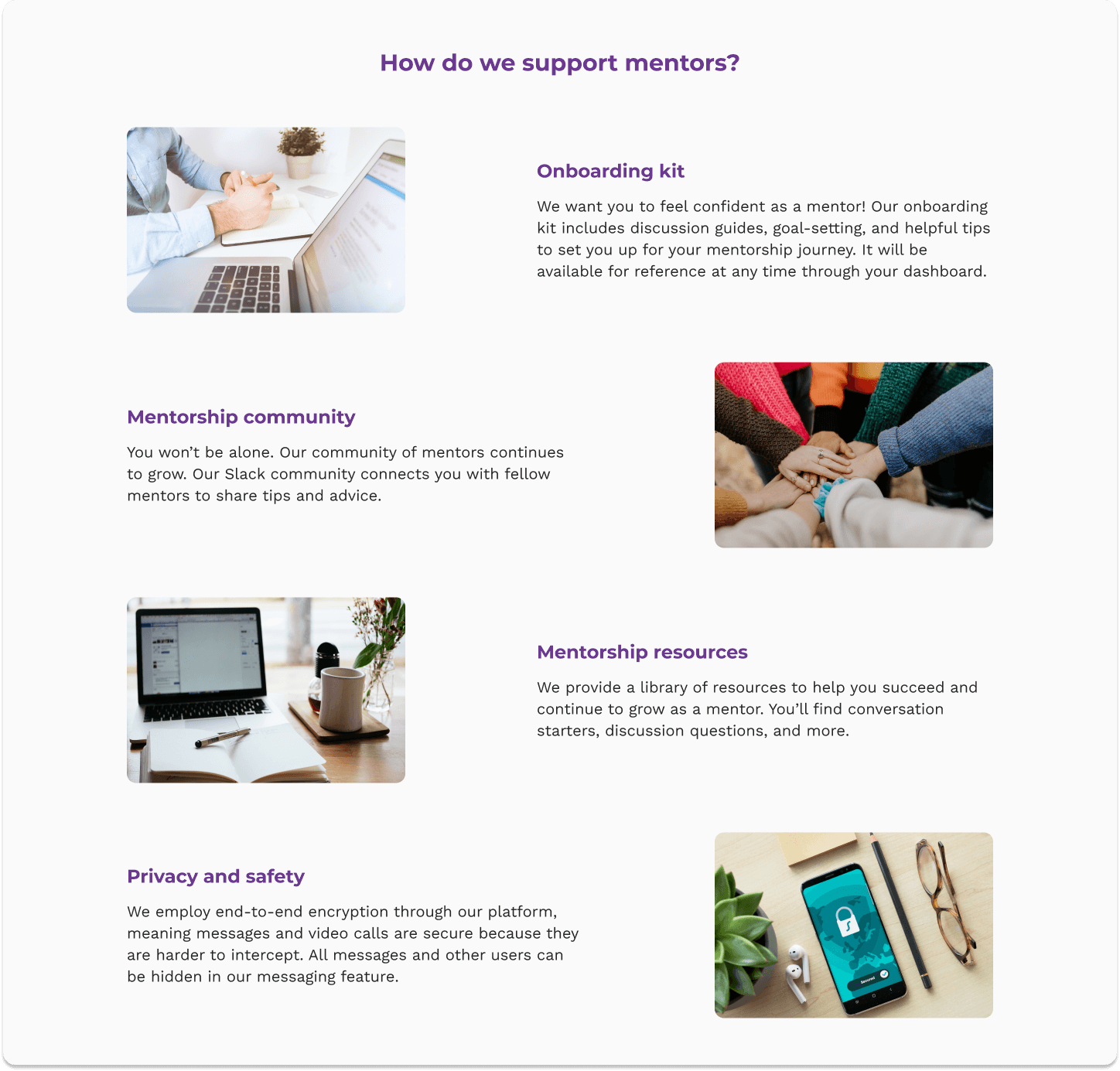
With the question around mentorship support removed from the FAQ, efforts focused on crafting copy for an entire mentor support section. Sean's Legacy has a comprehensive onboarding kit, and wanted this reflected in the copy.
Potential mentors indicated a desire for community support and resources in general, and we included these needs using uplifting, compassionate language.
Offering guidance and personal autonomy
Pre-filled examples for write-in text fields, as well as more specific writing prompts were considered for added clarity. This is an area where users may drop off due to uncertainty, confusion, or even annoyance so it's important to offer guidance.
Initial findings indicated mentors used the word story when referring to learning more about their mentee. ADPList, another mentorship platform, also uses this language ("Tell us your origin story", and "Everyone has a story, what's yours?").
I hypothesized utilizing the word story would be easily understandable, familiar, and speak directly to our users in their own words.
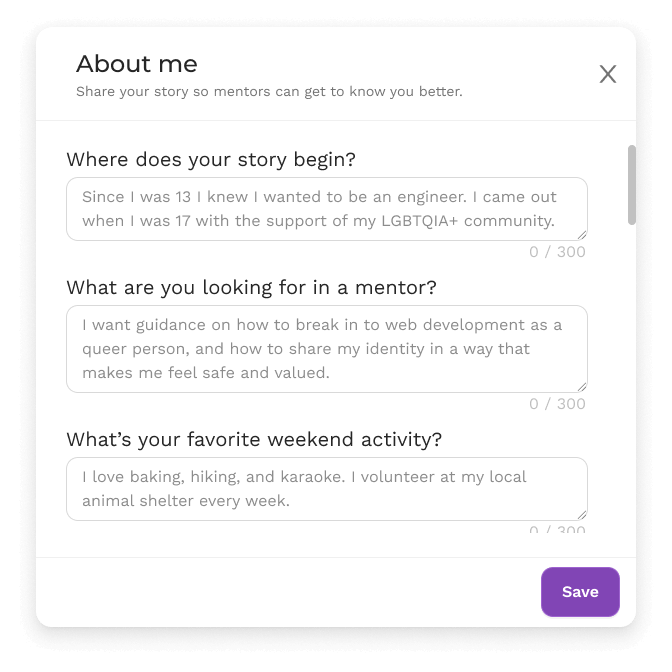
Most fit, but one was not quite right
Mentors liked the FAQ's and support resources, but the hypothesis of using the word story turned out to be incorrect. Research found 3 out of 6 mentors found this phrasing confusing. Different copy was offered for the next round of usability testing.
Crafting excellent user-centered copy takes time and testing to get right. Learning that story didn't resonate with mentors is not a failure but a learning opportunity and an opportunity to get closer next time.
Consistency requires cross-functional collaboration
In order to maintain consistency throughout designs, it's important to work with all cross-functional team members. Occasionally an update to copy would be missed by one of our two design teams during development handoff. This resulted in outdated copy being included on working prototypes and in the actual build.